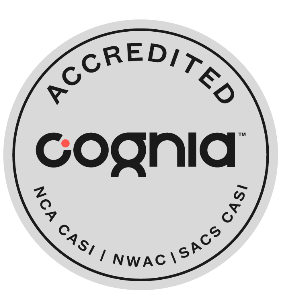ASSOCIATED ADMINISTRATIVE REGULATION:
300.13
ADOPTED:
08.5.2019
Student Data Collection Notice
Necessary Student Data
Necessary student data means data required by state statute or federal law to conduct the regular activities of the school.
- Student Name, Date of birth, and Sex
- Parent and student contact information and Custodial parent information
- A student identification number (including the student’s school ID number and the state‐assigned student identifier, or SSID)
- Local, state, and national assessment results or an exception from taking a local, state, or national assessment
- Courses taken and completed, credits earned, and other transcript information
- Course grades and grade point average
- Grade level and expected graduation date or graduation cohort
- Degree, diploma, credential attainment, and other school information
- Attendance and mobility
- Drop‐out data
- Immunization record or an exception from an immunization record
- Race, Ethnicity, or Tribal affiliation
- Remediation efforts
- An exception from a vision screening required under Section 53G‐9‐404 or information collected from a vision screening described in Utah Code Section 53G‐9‐404
- Information related to the Utah Registry of Autism and Development Disabilities (URADD), described in Utah Code Section 26‐7‐4
- Student injury information
- A disciplinary record created and maintained as described in Utah Code Section 53E‐9‐306
- Juvenile delinquency records
- English language learner status
- Child find and special education evaluation data related to initiation of an IEP
Optional Student Data
We may only collect optional student data with written consent from the student’s parent or from a student who has turned 18.
- Information related to an IEP or needed to provide special needs services
- Biometric information used to identify the student
- Information required for a student to participate in an optional federal or state program (e.g., information related to applying for free or reduced lunch)
Certain sensitive information on students collected via a psychological or psychiatric examination, test, or treatment, or any survey, analysis, or evaluation will only be collected with parental consent. You will receive a separate consent form in these cases. See our Protection of Pupil Rights Act (PPRA) notice for more information.
Prohibited Collections
We will not collect a student’s social security number or criminal record, except as required by Utah Code Section 78A‐6‐112(3).
Data Sharing
We will only share student data in accordance with the Family Educational Rights and Privacy Act
(FERPA), which generally requires written parental consent before sharing student data. FERPA includes several exceptions to this rule, where we may share student data without parental consent. For more information on third parties receiving student information from us, see our Metadata Dictionary.
Student data will be shared with the Utah State Board of Education via the Utah Transcript and Records Exchange (UTREx). For more information about UTREx and how it is used, please visit the Utah State Board of Education’s Information Technology website.
Benefits, Risks, and Parent Choices
The collection, use, and sharing of student data has both benefits and risks. Parents and students should learn about these benefits and risks and make choices regarding student data accordingly. Parents are given the following choices regarding student data:
- Choice to request to review education records of their children and request an explanation or interpretation of the records (see our annual FERPA notice for more information)
- Choice to contest the accuracy of certain records (see our annual FERPA notice for more information), potentially leading to the correction, expungement, or deletion of the record
- Choice to opt into certain data collections (see the section above on optional data collections)
- Choice to opt out of certain data exchanges
- Information that has been classified as directory information (see our directory information notice for more information)
- Parents of students with an IEP may have their information shared with the Utah Registry of Autism and Developmental Disabilities (URADD). If included in this data exchange, parents will receive a separate notice within 30 days of the exchange, informing them of their right to opt out, per Utah Code Section 53E‐9‐308(6)(b)
- Choice to file a complaint if you believe the school or its agents are violating your rights under FERPA or Utah’s Student Data Protection Act. If you have a complaint or concern, we recommend starting locally and then escalating to the state and US Department of Education
Storage and Security
In accordance with Board Rule R277‐487‐3(14), we have adopted a cybersecurity framework called the CIS Controls.
This online presentation is an electronic representation of the Canyons School District’s currently adopted policy manual. It does not reflect updating activities in progress. The official, authoritative manual is available for inspection in the office of the Superintendent located at 9361 South 300 East Sandy, UT 84070.

